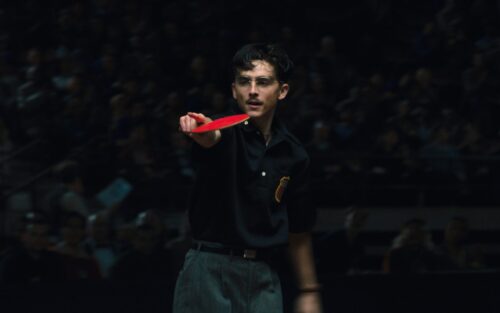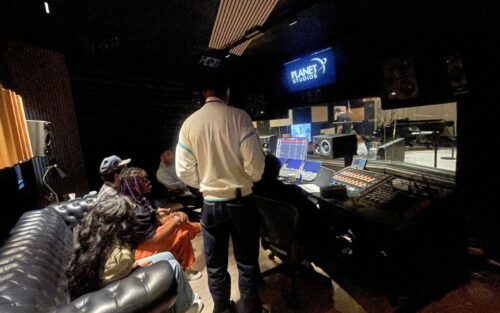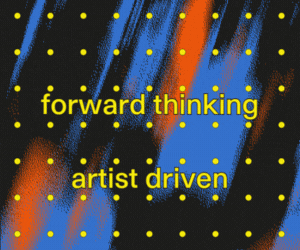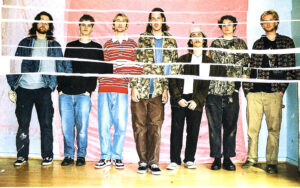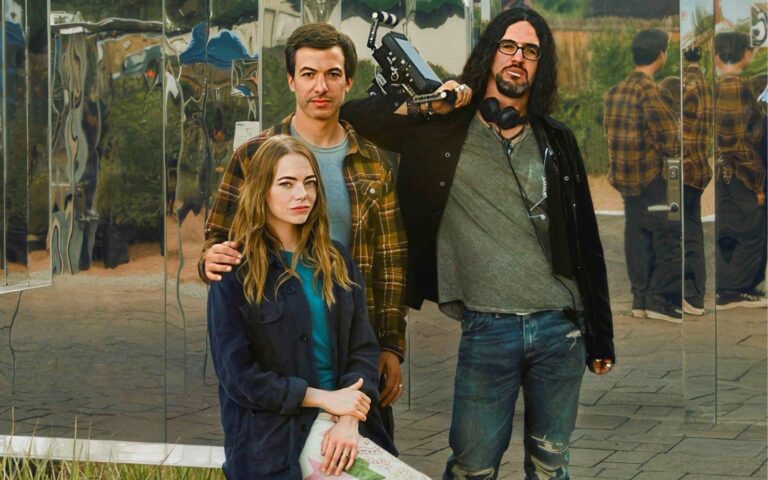
10 Uncomfy Things We Learned About The World From Watching The Curse
Nathan Fielder and Benny Safdie’s comedy-horror plays on just about every social faux pas in the book - and we're here for it.
by Ben Boddez
- Published on
Warning: Spoilers below
While many of his fans know that recommending Nathan Fielder’s work to friends and family is a bit of a fool’s errand – it’s abundantly clear that only a select few can withstand his deeply, deeply cringe comedy – Nathan Fielder’s The Curse, created with fellow shock-value genius Benny Safdie, was easily one of the year’s most anticipated shows.
Starring Fielder and a truly inspired Emma Stone as unstable married couple Asher and Whitney, the show finds them creating Flipanthropy, a spoof of HGTV reality content that sees them building homes and gentrifying neighbourhoods in New Mexico under the guise of activism. Safdie plays their producer, whose approach to the whole thing is a little more sadistic than Whitney’s anxiety for acceptance and the milquetoast Asher’s general cluelessness.
As they leave a trail of broken things in their path, the show touches on a variety of topics equally hilarious and important, including social media, the purpose of reality television, and considering your activism carefully. Here are some of the show’s standout moments and what they’ve taught us – so far.
Beware of Whitneys

We all know somebody like Whitney Siegel, and if there’s one thing that the show makes incredibly clear, it’s to beware of them. Whitney understands deep down that she has many shortcomings as a person – the worst of which being her masked disdain for her husband and her blasé attitudes towards issues concerning marginalized communities, something that we can see comes directly from her upbringing. Instead of working on fixing them, however, she meticulously tries to curate an image of herself that portrays her as exactly the opposite. Appearing as a smiling face on TV who appears to care or masking her vitriol towards her husband with a sanitized social media post, an interesting scene finds Safdie’s producer Dougie telling Whitney that Flipanthropy becomes more interesting when asides that find her breaking character and quibbling about her husband are included in the final cut.
Don’t Mess With Kids

The Curse certainly has an aspect of horror to it, and horror movies have been telling us for centuries not to mess with little kids. This goes doubly so in the TikTok generation. If you’re wondering why the show is even called The Curse, the premiere episode finds a young girl, inspired by a TikTok trend, placing a curse on Asher after he hands her a hundred-dollar bill and causes a scene by asking for it back. The act, of course, was for show purposes only, to appear as if Flipanthropy was legitimately giving back to the community. As things progress, it becomes more clear that there might be real supernatural elements at play – a befitting fate for all involved.
The G Word

One of the moments that made this viewer recoil in horror the most came early on, when a cheerful Asher responded to a pointed interview question about gentrification by saying “We don’t believe the G word has to be a game of winners and losers.” As the two stumble through monotone readings of land acknowledgements and construct entirely reflective, mirrored homes that make it appear as though the former community is quite literally being erased, it becomes all the more clear that Whitney and Asher’s activism has been completely misplaced, in fact actively harming those they set out to help. The only people it benefits are the TV network and the duo themselves.
Getting the Phone Out

One of the main things the show seems to touch on is the awkward veneer of performativity that social media and reality TV presents. Even Asher, who seems the least engaged with it, only finally accepts that Whitney is unhappy in their marriage when it’s presented to him in an edited, pre-packaged format of a Flipanthropy deleted scene. It’s made most unfortunate in a rare moment where the couple genuinely do connect, laughing together over Whitney’s shirt getting stuck over her head. Immediately after, Whitney ruins the moment by asking Asher to recreate it for social media, dulling the spontaneous magic as he tries to believably go through the same motions.
Nathan Against You

One prevailing theory online has been that some of the messaging contained in The Curse is actually Nathan Fielder’s way to address and apologize for some of the moral and ethical issues contained in his previous shows, Nathan For You and The Rehearsal. Both of these programs saw Fielder interacting with real people, many of whom could have been seen as being in a vulnerable position, as himself. Whether extracting comedy from these people finding hope in objectively awful business ideas or letting their most unfiltered ideas run wild, The Curse lingering on some of the subjects portrayed on Flipanthropy and their negative feelings towards Fielder’s host seems a little too personal to ignore – some of the most transformative comedy in the past years has come from deep self-reflection, after all.
10…9…8…

Deep down, both of The Curse’s central characters have a deep need to be accepted and affirmed – it’s where most of their problems stem from. But where Whitney searches for that from adoring audiences, Asher only searches for it from his partner. Among the many other issues they’re tackling, Fielder and Safdie seem to be warning of the dangers of getting a little too needy. A masterful performance by Fielder shows the hurt just barely creeping through as he tries to keep up appearances in a scene where Whitney suggests that she and Asher go bowling to inject some spark back in their marriage. Waiting for his response with a playful countdown, Asher responds “you love me, right?,” counting down in return and not receiving a response. Viewers everywhere ran for the hills.
People Pleasing

As a character, Asher is far from perfect, but among the show’s leads, he might be the most sympathetic. As he starts to break down and drop his people-pleasing façade, revealing the layers of hurt that Whitney and Dougie have inflicted upon him, more depth is added to a character that was initially a caricature. After saying “I’m exhausted” and distantly muttering “I’ll never tell you anything again” to Dougie after he uses an embarrassing admission against him while filming a confessional for Flipanthropy, he reverts back to calling him a good friend in the very next scene – as soon as Dougie panics, backtracks, and makes up a halfhearted explanation. For anyone out there with a bit of Asher’s tendencies, know when it’s time to cut and run.
“Trash” TV

The next time you settle down on the couch to throw on your favourite trashy reality show, think about Benny Safdie’s Dougie Schecter – who could only have been created by Fielder and himself to have the most squirm-inducing name they could imagine. In an early episode, Dougie reassures the show’s leading couple that the borderline exploitation that Flipanthropy is nothing compared to a previous show he produced, Love In The Third Degree – a dating show where the masked man vying for women’s attention is ultimately revealed to be a severe burn victim. As he’s seen elsewhere in The Curse curating confessionals to get the manipulated soundbites he desires, imagining a real life boardroom meeting led by someone like Schecter is probably enough to search for entertainment elsewhere.
That Is So Brave

One of the show’s more contentious and uncomfortable relationships is between Emma Stone’s Whitney and an Indigenous woman, Cara, an artist who she works with and calls a close friend, but who is clearly harbouring some grudges about Whitney’s attitude towards her culture. The culmination of this has to be when the two sit down for an interview about their collaboration that turns awkward when Whitney insists on Cara delivering her compliments that Whitney scripts word-for-word. Snapping back into her bubbly character with an “Ah! That is so sweet,” the scene ends with Whitney responding to Cara angrily opening up about the trauma of simply existing as an Indigenous woman with her go-to comment: “That is so beautiful.” Whether you replace the last word with brave, powerful, or anything else, it’s not the catch-all you think it is.
Comedy Classes Don’t Work For Everyone

Last but not least, please, whatever you do, don’t do this. We’ll let the video speak for itself, but comedy classes don’t work for everyone. https://www.youtube.com/watch?v=0bZO7T01Ssc
By Glenn Alderson
A deep-listening session reveals how Apple Music’s sonic innovation reshapes the way we hear.
By Cam Delisle
Dominic Weintraub and Hugo Williams take audiences on a treadmill-fueled ride through the chaos and hope of modern life.

